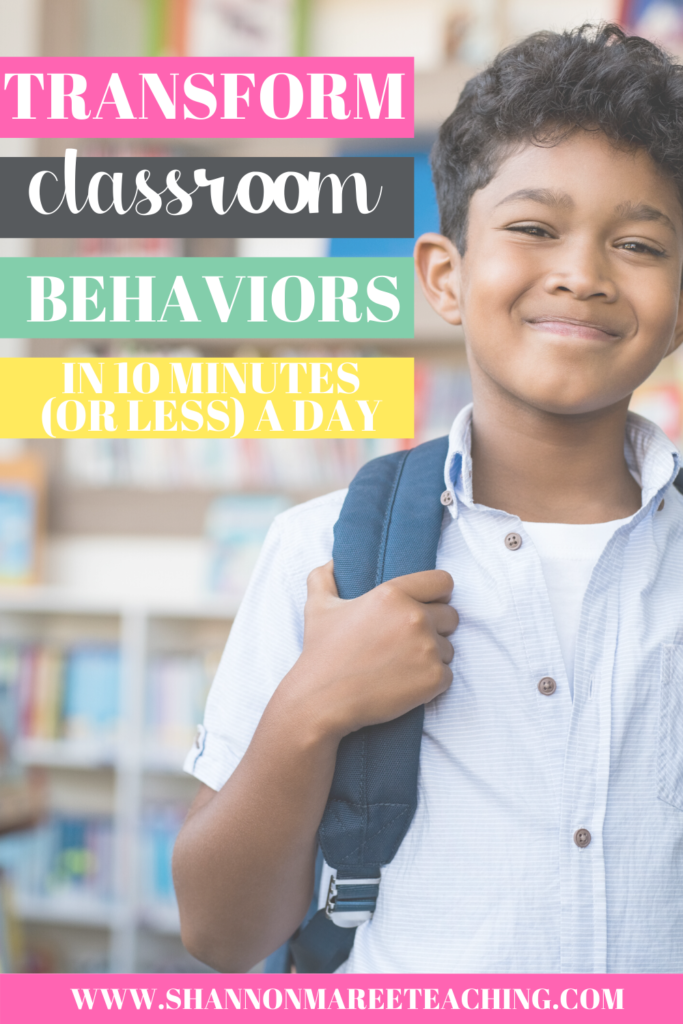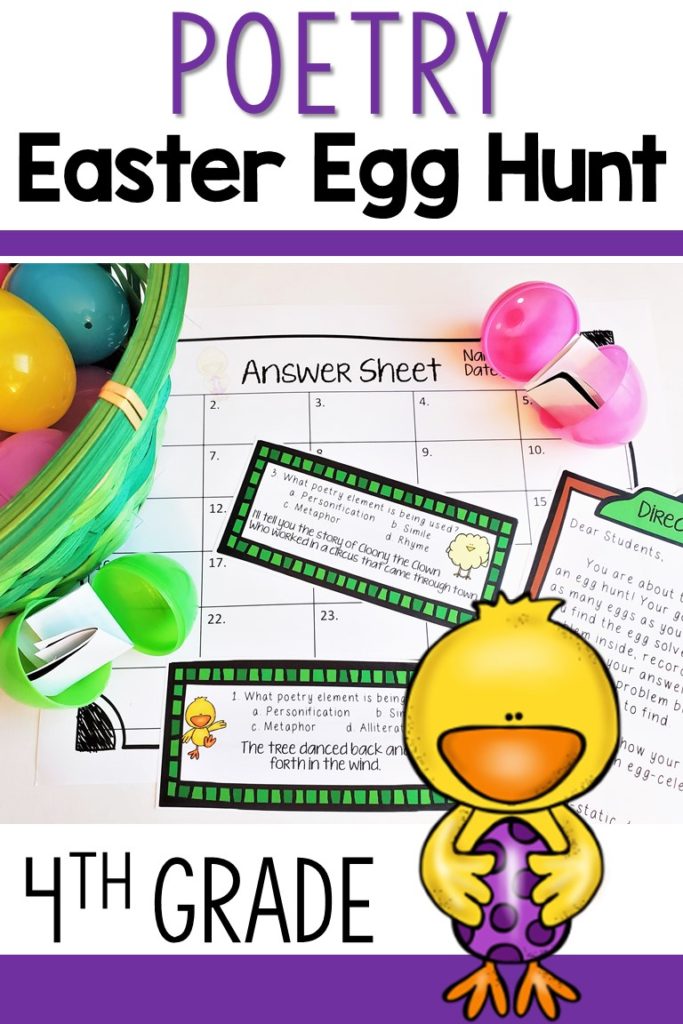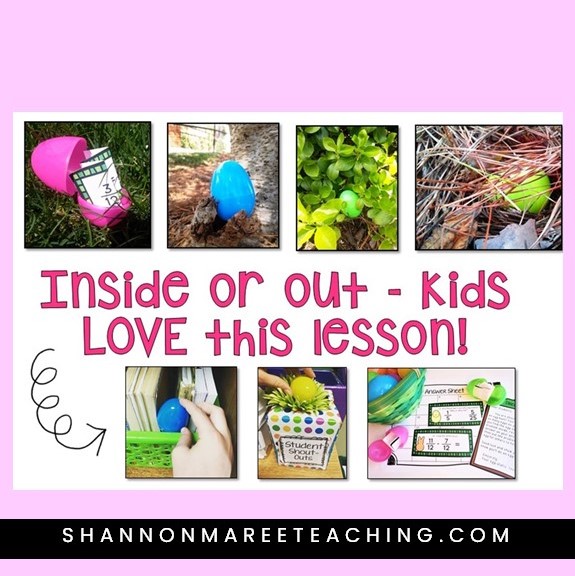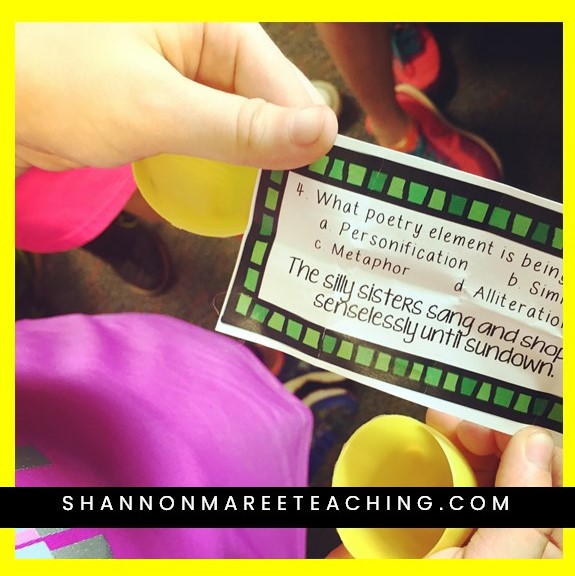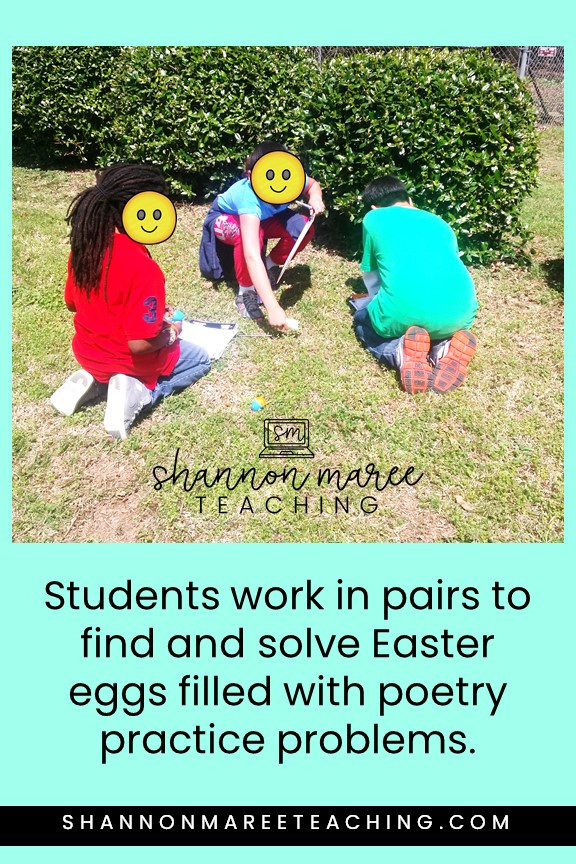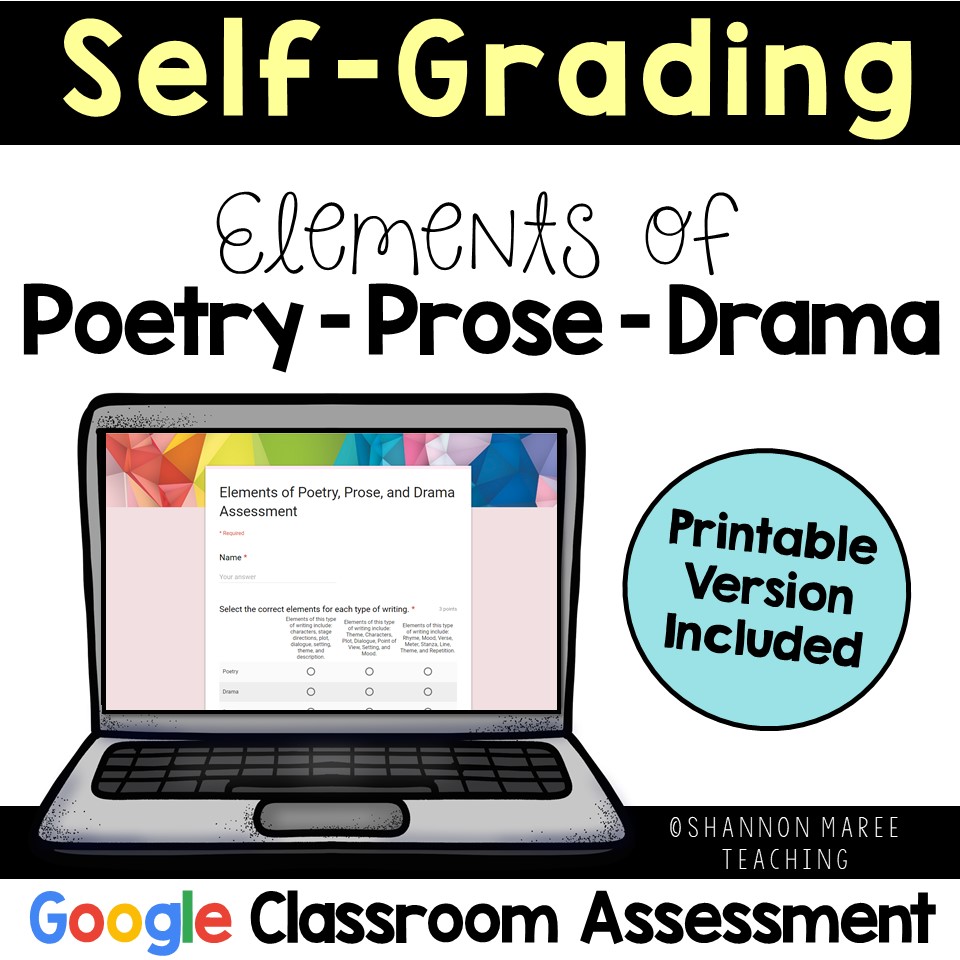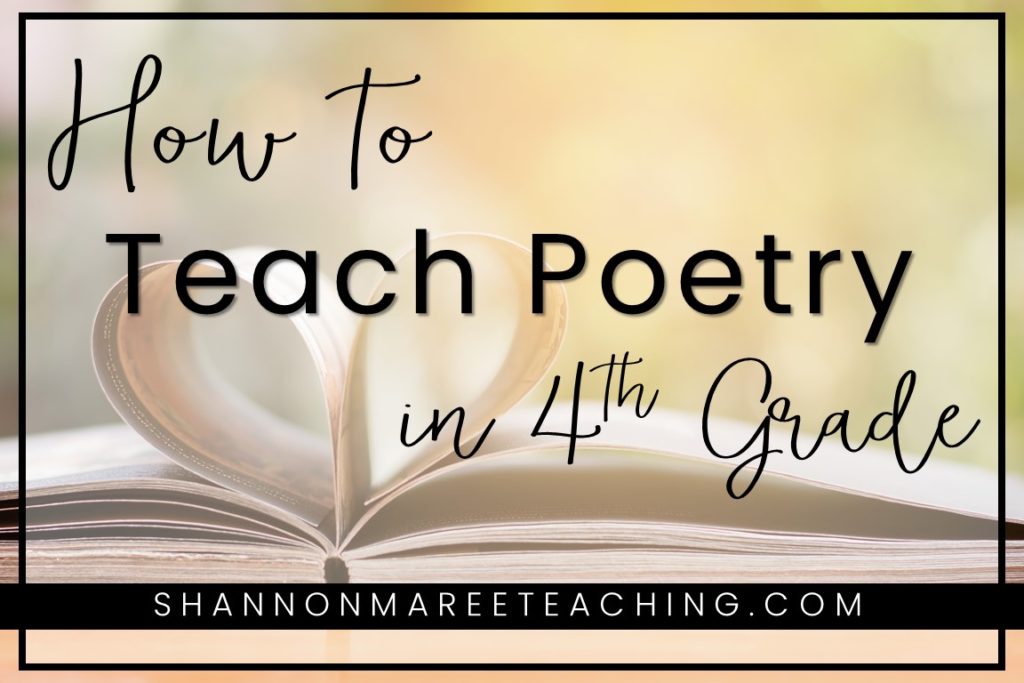
Poetry for 4th grade can be incredibly tricky. Over the years, I’ve learned the key points to help students truly understand what they’re reading and master poetry.
How to Teach Poetry
One of the first things I do when teaching students about poetry is I give them permission to be confused. It may sound odd, but poetry is often confusing for adults and children. By normalizing the idea and letting them know it’s okay to be confused it creates a mental shift in how students feel when they get stuck. My students LOVE learning that poetry confuses me sometimes too.
The next step is to give students strategies to use when they’re confused by a poem…because it will happen! Some strategies we practice are:
- Re-read the poem multiple times
- Make note of figurative language and comparisons being made
- Jot down an idea of what the theme might be
- Visualize: draw a picture or create a mental picture of what the poem is describing
- Circle unknown words or phrases (come back and try to use context clues later)
- Does the title give us any clues?
- Calm breathing, some students get frustrated by poetry and helping them deescalate emotionally helps them to be able to think critically about the poem
Poetry, Drama, Prose
4th-grade poetry common core standards require students to explain the difference between poetry, drama, and prose. There are so many fun ways to help students with this skill. Here are some of my favorites!
- Hula Hoop Venn Diagram: tape hula hoops down on tile floor (classroom or hallway) and have students use Expo markers to discuss the differences
- Act It Out: Have students act out dramas to deepen their understanding of the different elements. Students also love to transform a poem or prose into their own drama! This is a great quick assessment to see if they understand the various elements.
- Egg Hunt: April is Poetry month which usually aligns perfectly with Easter. A great way to channel student energy before spring break is with a poetry egg hunt!
- I buy some cheap Easter eggs then fill them with these fraction task cards.
- Depending on the weather, I hide them inside or outside! During math, the students take clipboards and recording sheets with them as they hunt for eggs!
- When they find an egg, they solve the problem, put the task card back in the egg, hide the egg for another student to find, and begin looking for their next egg.
Poetry Vocabulary
Are you exclusively teaching poetry or focusing on poetry, drama, and prose? Either way, STUDENTS NEED THE VOCABULARY to be successful. Creating flap books, digital word walls, and personal (along with class) anchor charts are some fun ways for students to organize the words. Here is some poetry vocabulary that I include:
- Elements and tools of poetry: lines, stanzas, theme, meter, rhyme, rhythm, repetition, and mood
- Figurative language: simile, metaphor, onomatopoeia, alliteration, personification, hyperbole, and idioms
Tips for Teaching Poetry
- Expose students to a wide variety of authors, topics, levels of difficulty, and forms of poetry
- MAKE IT FUN!
- Teach strategies to use when reading poetry
- Practice using context clues
4th Grade Poetry: Common Core Standards
Even if your state doesn’t follow the common core, most 4th graders are expected to be able to read and comprehend age-appropriate poetry.
When teaching poetry for elementary students, they are responsible for mastering poetry common core standards. Referenced here as the ability to:
Explain major differences between poems, drama, and prose, and refer to the structural elements of poems (e.g., verse, rhythm, meter) and drama (e.g., casts of characters, settings, descriptions, dialogue, stage directions) when writing or speaking about a text. (RL4.5)
Even though poetry isn’t specifically mentioned in many standards it’s still a key skill. Students are expected to be able to apply those skills when reading poetry. One area I always see my students struggle to do this is context clues!
Poetry for 4th Graders: Testing
Whether it’s teaching poetry for 4th grade, poetry, drama, and prose for common core, or any skill… it’s crucial to know our students’ level of understanding. The fastest and easiest way I’ve found to do this is through self-grading assessments. This is the resource I use to check in with my students after I teach poetry, drama, and prose. Actually, I use it for every core 4th-grade reading standard I love it so much!
As a new mom and full-time teacher, I found myself stretched to the max. Something had to change…and you can read more about how self-grading assessments changed my life forever right here.
What are your favorite poetry activities? Drop them in the comments below. I’d love to hear your ideas!
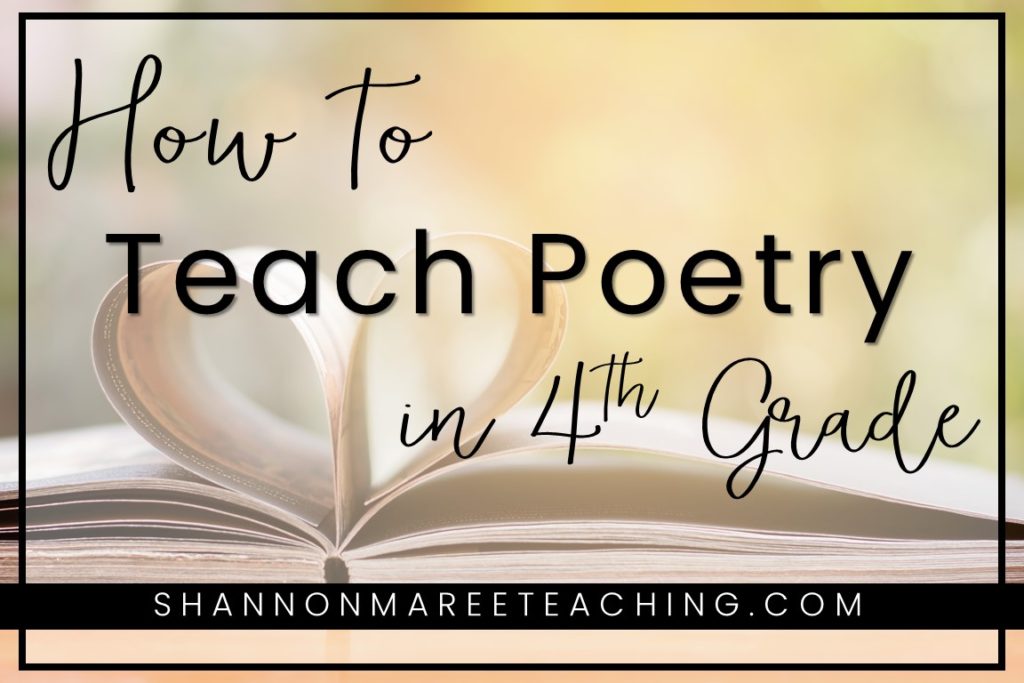
P.S. Are you looking for ways to cultivate a culture of kindness in your classroom?
Eliminate disruptive behaviors?
Help your students with social-emotional learning?
I’ve got your answer! Check out this totally free teacher tool right here.
